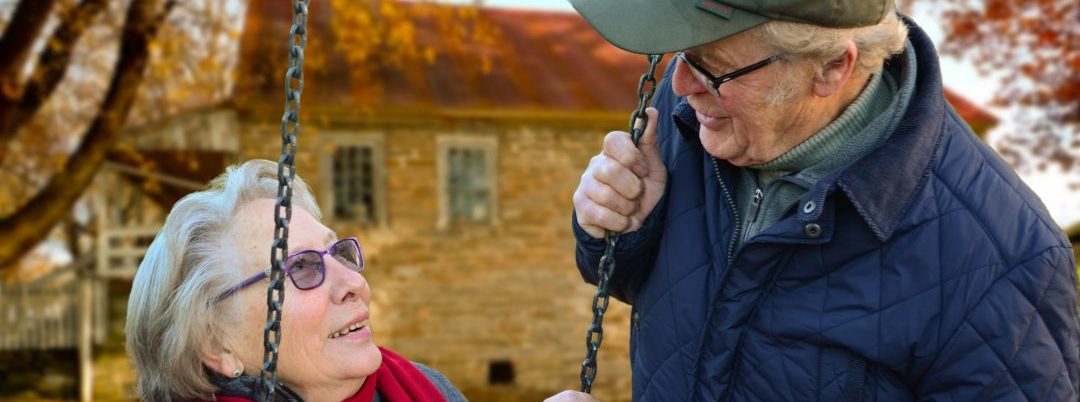
Over the course of the last year, something has become abundantly clear to me. My parents are getting old and they need my help. My mother and father are 78 and 79 respectively. Until recently, their age has been just a number. They have always been strong and healthy. They have always been fiercely independent. For years, they have grown a big garden, cut firewood, and enjoyed trout fishing. However, they have recently had to give up some of their favorite activities.
Physically and cognitively, they cannot do the things they used to do. Emotionally, this has been difficult for them, but it has also been challenging for me. They need me for things they used to be able to handle themselves. I have had to learn to juggle my already hectic schedule so that their needs are met.
One might think this would be the hard part. However, I assure you, it is not. The hardest part for me is the wave of emotions I have ridden because this has forced me to make changes in my own life. In the last year, I have been angry, resentful, frustrated, depressed, and sad. At times, I have felt pity. Other times, I have experienced emotional detachment. For all of these emotions I have felt a deep guilt.
They are my parents. Why, when they need me the most, is it so hard to love them Recent statistics tell me that I am not alone. According to the Journal of Women and Aging, approximately 28 million adult children in the United States are providing some level of care and support to their aging parents[1].
The 2008 US Census reports that more adults are living into the eighth, ninth, and tenth decade of life than ever before in this countryʼs history.
The census also reports that in 2007 there are 2 million people, age 90 and older, living in the United States, and this number is expected to reach 8.7 million by the middle of the twenty-first century. In other words, this is the fastest growing segment of the population in the United States. This also means that, like me, there will be more adult children providing assistance to their aging parents. This at a time when they themselves are facing their own late midlife aging issues.
So I am not alone on this emotional roller coaster. What I am experiencing may be difficult, but it is also normal. Many people my age are either in the seat beside me, or next in line to get on. It is important then to face these feelings and take measures that will help us through the process. I would like to suggest some things that have helped me:
Accept that things have changed. Roles have changed. Cognitive function has changed. Emotions have changed. Things that worked in the past may not work in the future.
Take things slowly. Expect nothing in return, but do expect anger and resentment, at least initially. Remember, you may realize that they need help long before they are willing to admit it.
Do not try to control them. It will be far more advantageous to offer suggestions than to give orders. Ask for their advice and allow them as much autonomy as possible. Yes, your life is changing. But so is the life of your parents. As hard as this may be on you, remember, for them, these changes are coming very quickly.
Treat health care workers with love and respect. Whether it be a cleaning person, case worker, doctor, or a caring neighbor, always be gracious and kind. You will need them if you truly want to provide the best possible care for your parents.
Talk to your friends. Many of them are going through the very same thing and will be valuable resource of information
Finally, allow yourself down time. Have some fun, and get away when possible. Whether it be an afternoon matinee or a weekend at the beach with friends, enjoy yourself whenever you can. You will need time to recharge and refresh so you can move forward and fulfill your responsibilities.
Through it all, I have come to the realization that I am not cursed, as I had originally believed. I am just a member of the generation that is now caring for their elderly parents. I have also come to realize that seeing my beloved parents through the final years of their lives may be some of the most challenging and rewarding work I will ever do. I plan to do the work that I need to do to love them and do it well.
Kim Cartwright is a writer, speaker, and researcher who is passionate about helping people with issues such as self worth, eating disorders, and relationships. Check out her personal blog, (She)ology, and find her on Twitter @kimbrly63.
1 Natalie D. Pope and others. “How Women in Late Midlife Become Caregivers for Their Aging Parents” in Journal of Women and Aging (Nov 2012), 242.
Let’s keep in touch! Sign up to receive our newsletter:
Start a Relationship with An Exceptional Counselor
- Skilled and caring professional counselors
- Accepting all major and most insurances
- High-touch customer service & premium benefits
- Same- or next-day appointments
- Ultra-flexible 23.5hr cancellations















This is enough for guidance and information on caring for my aging parents. Thank you for sharing effective information about caring for your parents. Nice article